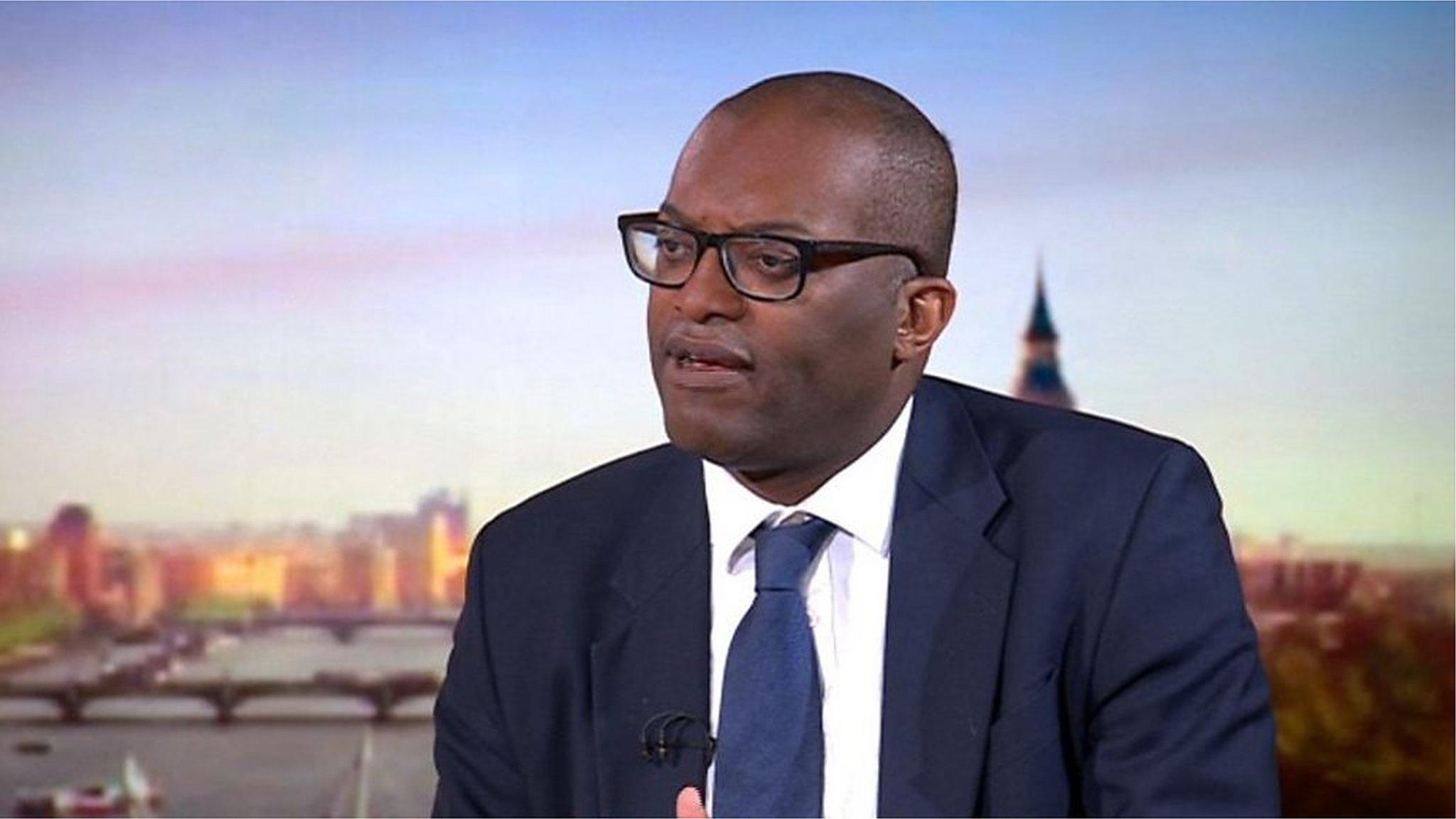Kwasi Kwarteng considers scrapping bankers’ bonus cap to boost City
- Published

New Chancellor Kwasi Kwarteng
The Treasury is considering removing a cap on bankers' bonuses as part of a post-Brexit shake-up of City rules.
Sources said no final decisions had been made, but confirmed chancellor Kwasi Kwarteng considered it a way of making London a more attractive place for global banks to do business.
City bosses have long complained about the EU-wide bonus rules which cap bonuses at twice an employee's salary.
They say they lead to higher base pay that pushes up banks' fixed costs.
Those costs cannot be adjusted in line with the firm's financial performance, they add, making the UK less attractive than the US or Asia.
People close to Mr Kwarteng confirmed reports in the Financial Times, external that the new chancellor is considering the move.
Critics have argued that uncapped bonuses lead to the kind of excessive risk taking that spawned the financial crisis of 2008.
But others argue that other new rules that can hold senior managers personally and potentially criminally responsible for misconduct, plus the ability to claw back bonuses years after they are granted, achieve a sufficient disincentive.
Taking the lid off bankers' pay at a time when many households are facing hardship from the rising cost of living will undoubtedly provoke outrage in many quarters.
The proposal "sends a rather confused signal when people are being squeezed in terms of the cost of living, and the government is trying to encourage pay restraint in the public sector", Andrew Sentance, a former member of the Bank of England's Monetary Policy Committee, told the BBC.
"To appear to allow bankers to have bigger bonuses at the same time, doesn't look very well timed. There may be some longer term arguments for pursing this policy but I think the timing would be very bad if they did it now."
Rachel Winter, from Killick & Co, told the BBC: "It's an absolutely terrible time for this headline when you've got inflation [at] a 40-year high, you've got so many people struggling with the cost of living, do we really want to be reading headlines about banker bonuses?
"Arguably the banks do pay a lot of tax, so I think the chancellor is looking at ways to boost the UK economy to get more banks to come to London, to stay in London and pay more tax."
Political fight
Removing the cap is just one of a number of deregulation initiatives being considered.
The government is also keen to relax rules limiting the amount insurance and pension funds can invest in assets that are harder to sell at short notice - such as long-term infrastructure projects.
These rules are part of pan-European regulations collectively known as Solvency II.
But the Bank of England is concerned that relaxing the rules could expose pensioners' savings to greater long-term risk and that lowering the amount of ready cash firms are required to hold could see them pay out any money freed up to their shareholders rather than invest in projects favoured by the government.
Pitting the Treasury and the financial services industry against the Bank of England is seen as a key test of the Bank's independence and senior officials at the Bank have privately conceded the fight over Solvency II is a political one they could well lose.
Kwasi Kwarteng laid out his "unashamedly pro-growth plan" for the economy at a gathering of senior bankers two weeks ago.
He would argue that the instincts that persuade him to cut banking regulations are the same instincts that persuaded him to throw a £100bn-plus shield over businesses and households to prevent high energy prices causing a job-and-growth-killing recession.
Related topics
- Published14 October 2022

- Published15 May 2022

- Published28 January 2021
